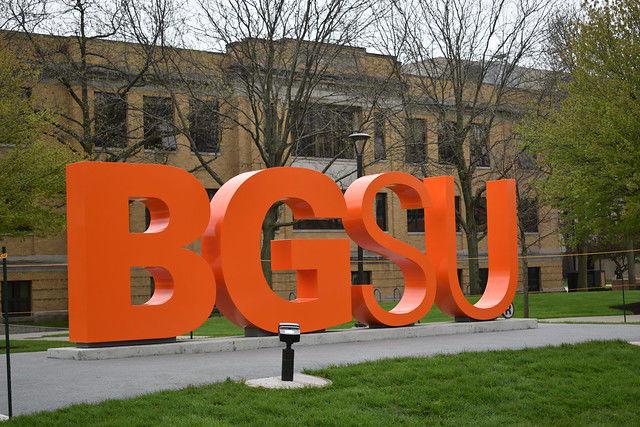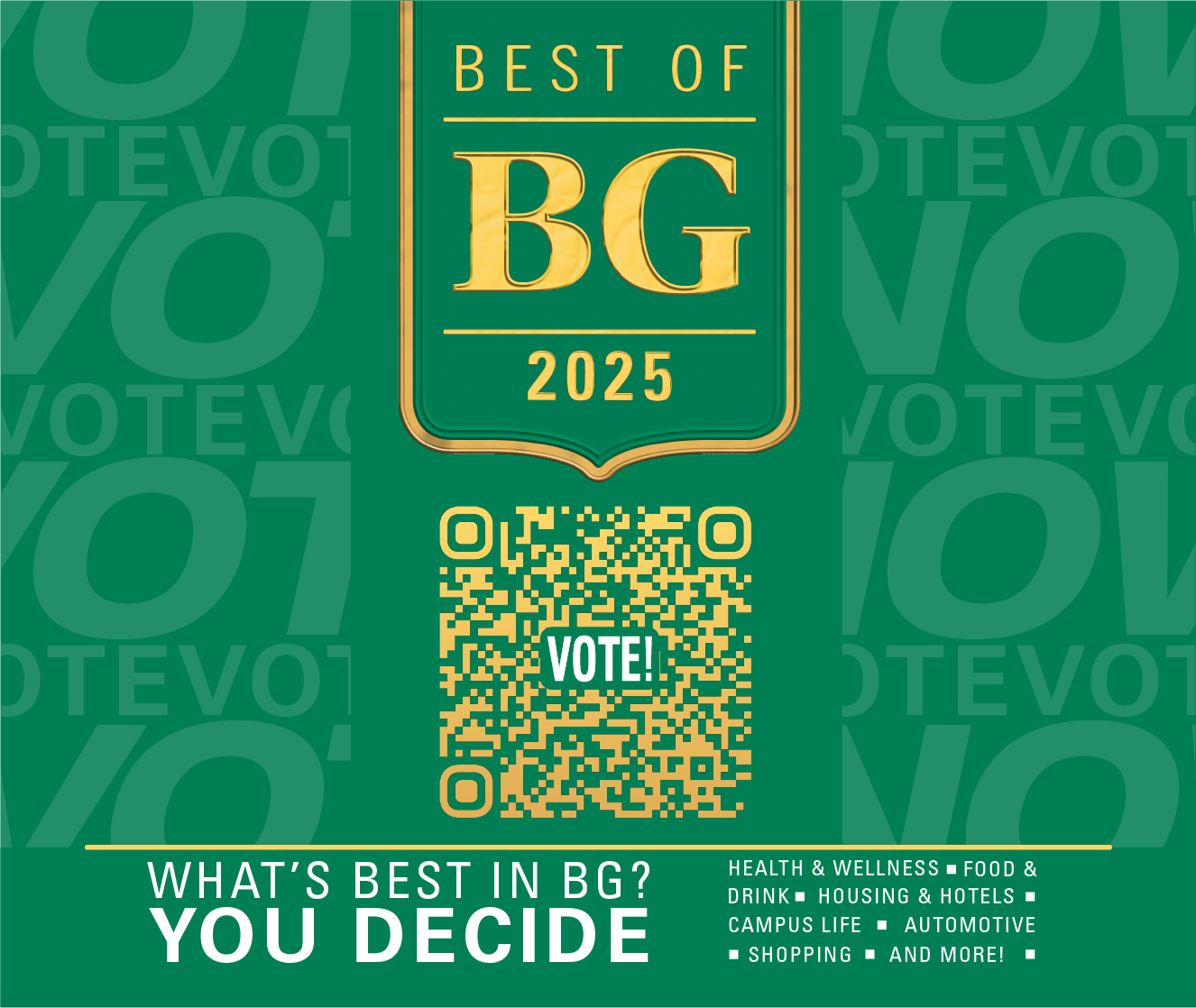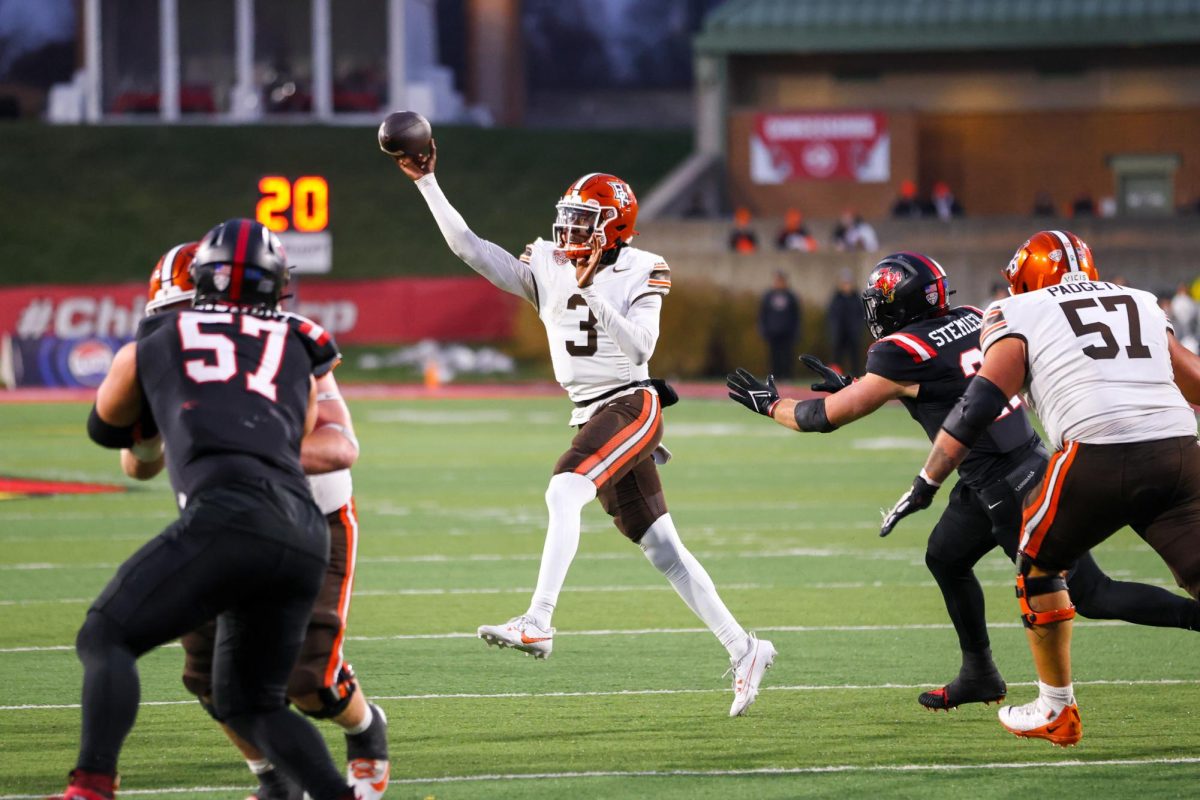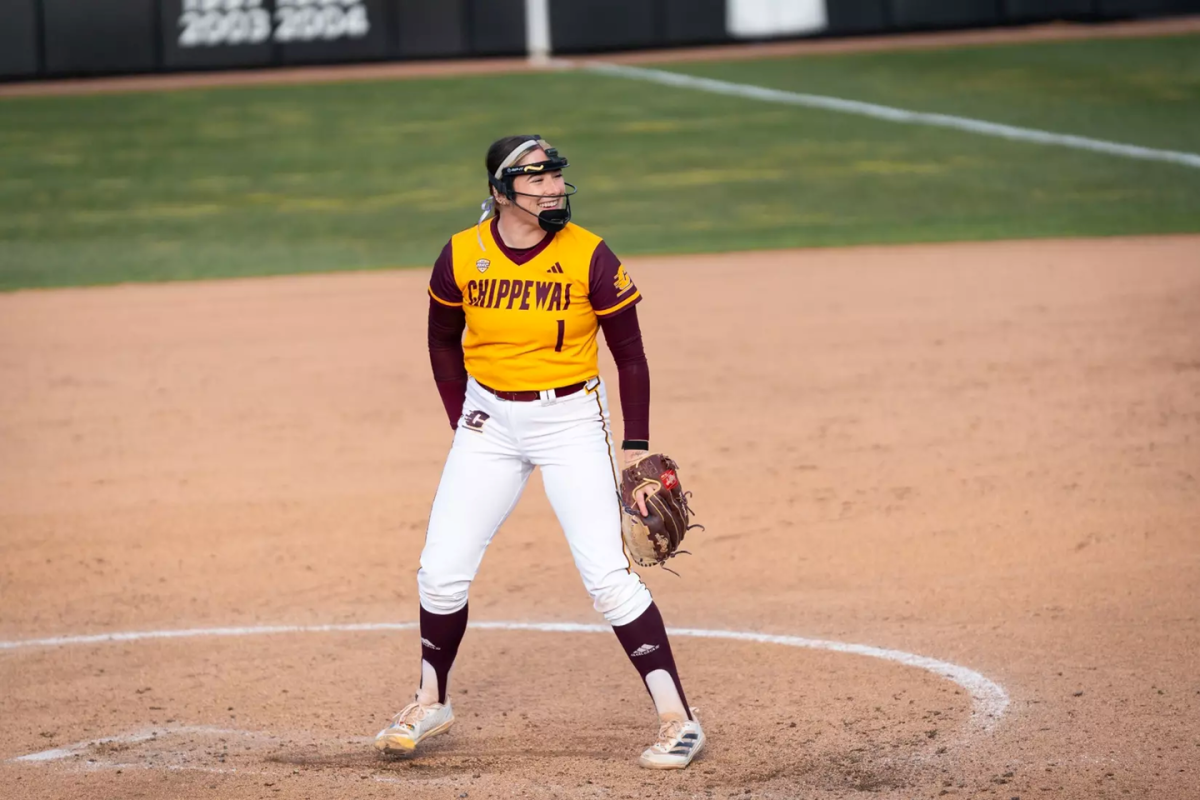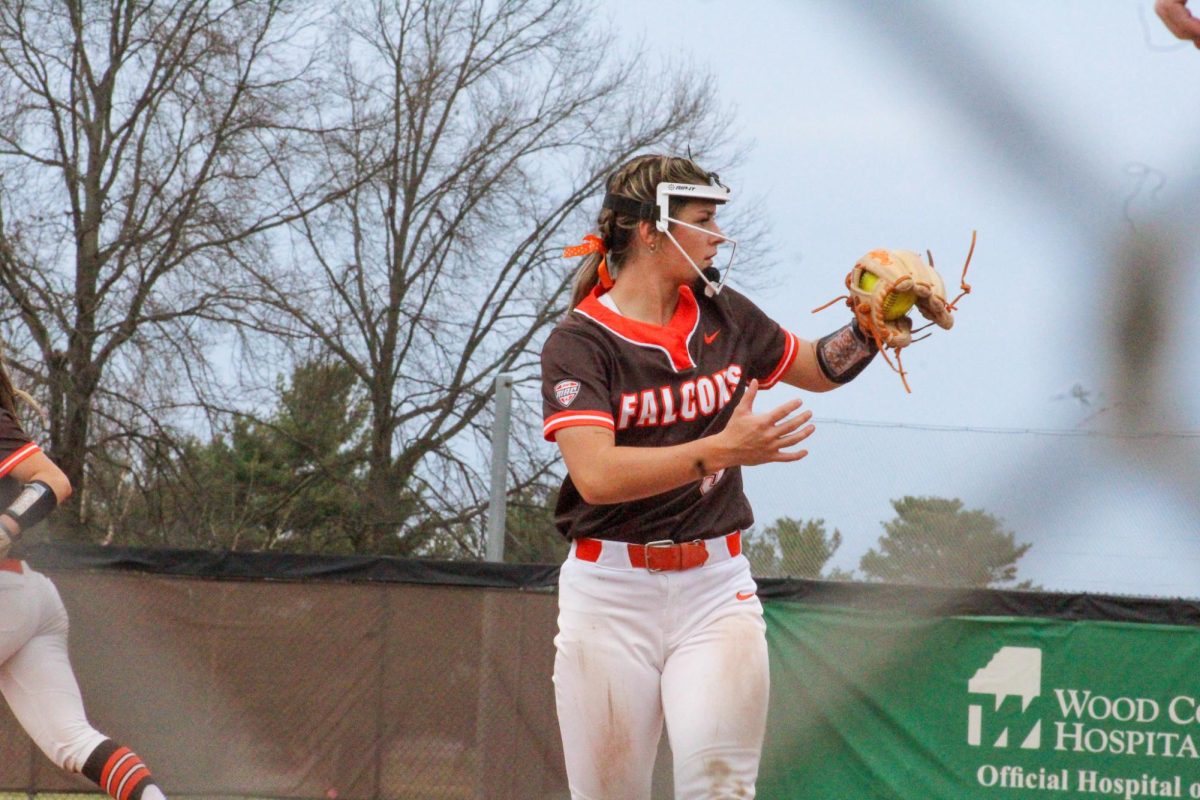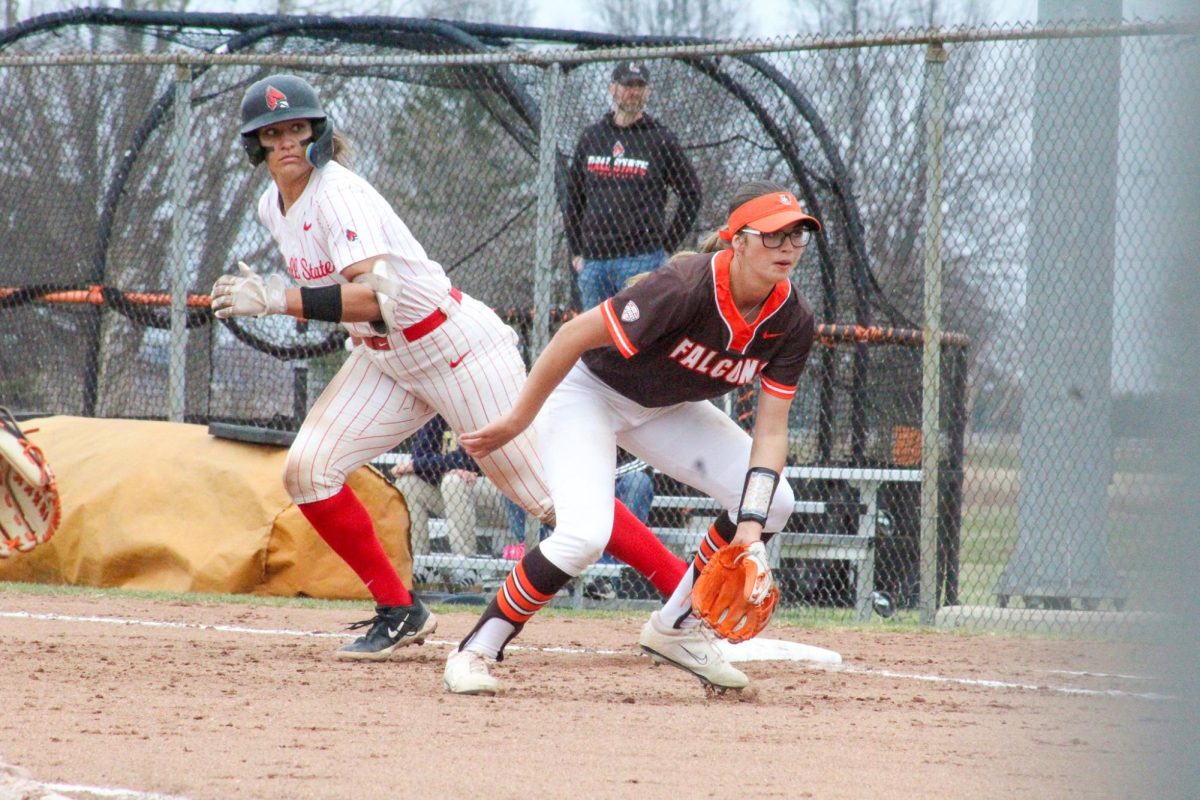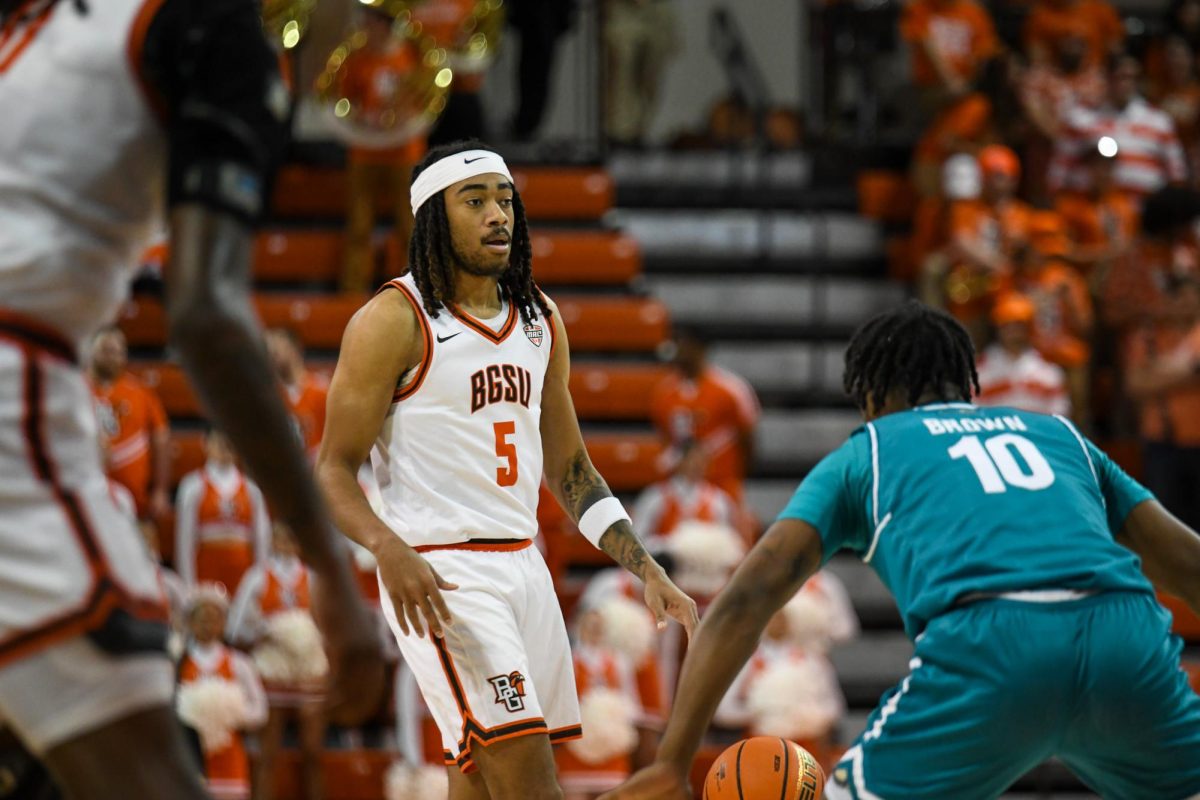Black students share their voices after Tyre Nichols’ death
BGSU Letters
February 7, 2023
Black students are saying they are feeling tired, disturbed, upset, targeted and scared as a result of the racial climate in the United States.
With many Black people dying at the hands of police and those deaths pervading social media and daily headlines, many students are buried in exhaustion, grief and frustration. The recent death of Tyre Nichols has not made things any easier.
On the evening of Jan. 7, Nichols, a 29-year-old Black man, was beaten by five Memphis police officers after being stopped for what the police initially said was reckless driving, according to The New York Times. Nichols was beaten for nearly three minutes. The bodycam footage of the violent arrest was released on Jan. 27.
One BGSU student said they only watched two out of the six videos that were released.
“I just couldn’t watch it anymore. I used to want to be a police officer and seeing stuff like this hurts,” they said.
Aarian Lynn, a fourth-year political science pre-law student, discussed how Nichols’ death affected her as a mother.
Though many of the police officers and emergency personnel that were involved are being held accountable for their actions, Nichols’ death is triggering protests against police violence throughout the U.S. Furthermore, BGSU students are frustrated with the university’s lack of recognition and acknowledgement of the tragic event.
One student mentioned how they “wish that BGSU recognized the situation as they have previously.”
“The school sent out an email and they also had an event in the union with the university’s Office of Diversity and Belonging to talk and have a campus-wide conversation,” they said.
Lynn is not surprised that the university has not made a statement.
“As a student at a predominantly white institution, I’m just not surprised that the university said absolutely nothing. They never do,” she said.
Lynn expressed disappointment at the expectation for Black students to carry on as they normally would after an event such as Nichols’ death.
“This is common across the country. We are expected to see someone who looks like us be murdered on social media outlets and expected to just keep going. No university wide email with resources for Black students. Just silence. I guess we are supposed to grieve Nichols’ death in private. I’m disappointed but I’m not surprised,” she said.
Some Black students are finding it difficult to navigate BGSU due to issues of visibility and the lack of diversity in students and faculty. Onyx Sanders feels like they “stand out like a sore thumb.”
“I hate it here,” Sanders, a third-year human development family studies student, said.
“I came here because BGSU is my mom’s alma-mater and even then, she was talking about the bigotry. I hate how [white people] can automatically feel safe here and I’m on edge, that I’m a target, that I’m noticeable. My family says I’m a raisin in the sand, but like damn, why isn’t BG big on diversity, even with faculty? I feel so seen when I see a Black member, it’s like ‘whew we are here,’ just not enough.”
Lynn said that BGSU officials may not be aware of what Black students experience.
“They aren’t used to logging on Instagram and seeing live footage of a Black man being slaughtered on social media,” she said.
Lynn said the university isn’t speaking out because of the lack of understanding of Black student experiences.
“They leave it up to Black safe spaces like Black Student Union to host these conversations, which is simply not fair,” she said.
Taran Sherman, President of Black Student Union at BGSU, said he’s mindful of his presence in spaces and the fear that comes with it.
“At any moment that could be me so there’s always a level of fear, ‘Am I too Black?’ ‘Am I too vocal?’ ‘Am I allowed in this space?’,” he said. “I think that’s something you always think and come across.”
Sherman said he uses his position at BGSU to build community and bring people together.
“It’s a reminder of why I do the work that I do,” he said. “I feel like my job here on campus is to invoke a space of belonging and I’m glad I was given the vessel of Black Student Union to be able to do that. So, within that fear, there’s also a level of understanding that we need to come together. Just trying to double down on giving more opportunities for the community to come together because we are stronger as one than as individuals.”
Falcon Media reached out to Student Engagement for comments on the missing representation of Black issues on campus and they responded with an event that happened Tuesday with the “Finding Your Voice in Social Justice” Learning Community where Dr. Thomas Edge of the department of ethnic studies discussed the history of Black protests against police.


